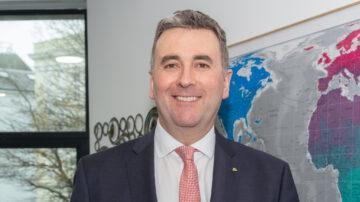‘Private capital is essential in the fight against climate change’ say global wealth holders.
- 86% of high net worth individuals, family offices, and foundations believe their private capital will be essential in addressing climate change
- 79% agree that governments’ pandemic stimulus packages should prioritise green investment and the transition to a low carbon economy
- 70% see the transition to a global net zero emissions economy as ‘the greatest commercial opportunity of our age’
- Wealth holders already active in sustainable investing expect it will constitute, on average, 47% of their portfolios in 2022 and 54% by 2027
A new research report produced by Campden Wealth on behalf of Global Impact Solutions Today (GIST) and Barclays Private Bank reveals that the vast majority (86%) of global private wealth holders, family offices and foundations see investing their private capital as essential to address climate change, alongside action from government, charities and corporations.
The 2021 edition of ‘Investing for Global Impact: A Power for Good’, now in its eighth year, provides unique insight into the attitudes and actions of the world’s wealthiest individuals, families, family offices, and their foundations when it comes to generating positive impact with their capital.
Private wealth holders want to play their role to address climate change
61% are concerned this year’s UN Climate Change Conference (COP26) won’t make sufficient progress to fully address climate change
The majority (80%) of wealth holders said climate change is a relevant factor in the decisions they make for their investment portfolio, with 67 per cent saying they would like their family portfolio to meet the requirements of the 2°C scenario of the Paris Agreement.
Despite recognising the action required, there is some concern around the public and private sector’s ability to solve climate issues. Eight in 10 (79%) agree that governments’ pandemic stimulus packages should prioritise green investment and the transition to a low carbon economy. 50% believe that it is possible to keep global average temperature increase below 2°C.
At the same time, they would like to see governments and wealthier nations doing more. Nine in 10 (89%) believe that governments should do more to meet the Paris Agreement, and 61% have expressed a concern that this year’s United Nations Climate Change Conference (COP26) won’t make sufficient progress to fully address climate change. Similarly, 71% believe that developed countries, in particular, should be increasing their financial commitment to developing countries and to the solutions to avoid climate change.
Transition to net zero presents huge opportunities to invest for change
70% of respondents agree that the transition to net zero has become ‘the greatest commercial opportunity of our age’ as it represents a chance to benefit from the companies and innovations addressing climate change. 30% of global wealth holders are targeting investments that directly support a transition to a low carbon economy, and 24% are seeking to avoid any companies that they assess as major contributors to the issue of climate change.
Almost six in 10 (59%) allocate capital directly to companies, projects, and real assets, while 41% of portfolios invest via an indirect strategy created and run by asset managers and other intermediaries.
Growth in sustainable investing as well as fears of greenwashed assets
76% are concerned about making an investment that has been greenwashed
Sustainable investing is expected to continue expanding within portfolios. This year’s report reveals almost two thirds of respondents (63%) agree that Covid-19 has made impact investing more appealing. Furthermore, for those already active in sustainable investing, they expect it will account for, on average, 47% of their portfolios by 2022 and 54% by 2027.
Even the respondents who self-identified as only traditional investors, have started to adopt the responsible investing practice of using ESG. In fact, nearly half (48%) of these ‘traditional’ investors say that their portfolios now incorporate ESG considerations.
As private wealth holders make these portfolio transitions, 76% are concerned about making an investment that has been greenwashed. Respondents say they would be most reassured by: robust measurement and reporting (59%), trust in the leadership of the invested company or investment (55%), or a track record of past impact delivery from the company or fund (45%).
Respondents still see room for improvement in terms of accessing high-quality impact investment opportunities and information. The two gaps most frequently highlighted by respondents in finding available impact investing vehicles are lack of a strong financial record (97%) and lack of a strong impact track record (95%).
Damian Payiatakis, Head of Sustainable and Impact Investing, Barclays Private Bank, explained: “Climate change is the next, and larger, systemic challenge we have to face globally. It is encouraging that leading global wealth holders are seeking to play a role in this fight. From our conversations, I hear them express both a responsibility and an opportunity to use their capital at this pivotal point.
“While we see heightened awareness, action does not always immediately follow. Moreover, navigating the rapidly growing green investment market is increasingly difficult. So we’re having to work more to help individuals and family offices articulate the impact they want to make; and then find high-quality investments that will actually contribute to the solutions to counter climate change as well as target the returns they want.”















